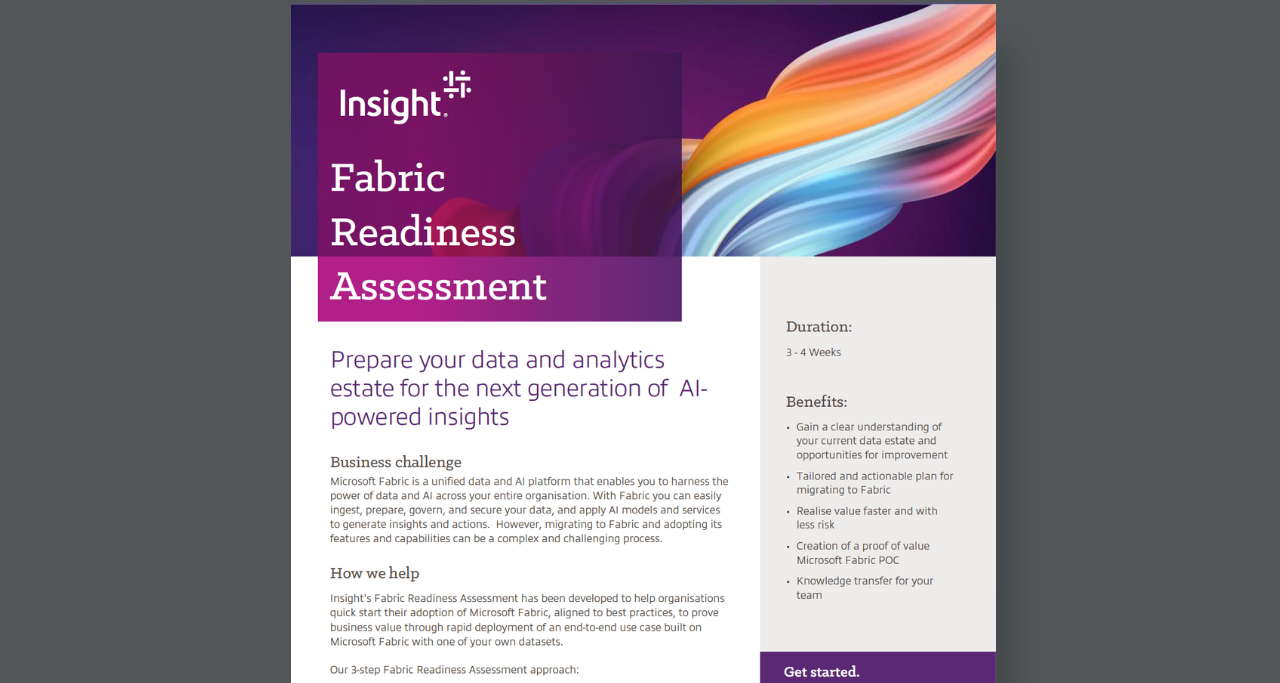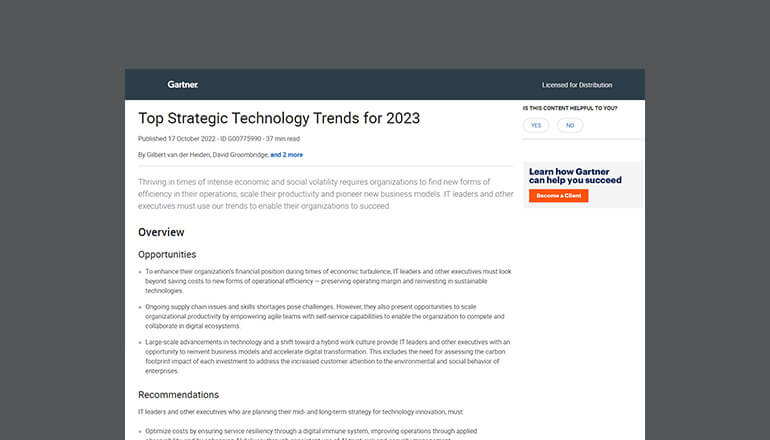Tech Journal Catholic Schools NSW chalks up big data and analytics win for schools and students
By Insight Editor / 25 Apr 2022 / Topics: Artificial Intelligence (AI) , DevOps , Application development , Microsoft Azure
Facts at a glance
Client industry:
Education
Challenge:
With schools and students spread across the length and breadth of NSW, Catholic Schools NSW (CSNSW) had to wrangle data that was also widely dispersed, often in hard to access silos.
Solution:
A major data and analytics initiative being undertaken by Catholic Schools NSW (CSNSW) will create a comprehensive and up-to-date central data source that can be accessed and interpreted using modern analytics platforms by authorised personnel across the entire network.
A modern data platform that’s designed to streamline operations, accelerate reporting and ensure that schools have data that will allow each of their students to achieve their full potential.
Results:
The streamlined data access and analysis is saving dioceses six to eight weeks each year that would previously have been required just to find and process data that had been squirreled away in different silos. Now data is just a click away.
There are more savings ahead as schools start to make more sophisticated use of data to drive learning outcomes, and analytics becomes embedded in the normal running of schools and dioceses as a way to drive continuous improvement.
Solution area:
Insight’s Digital Innovation solutions help clients digitally transform their operations to improve user engagement and experience.
Across New South Wales 257,000 students attend 598 Catholic schools operated by 30,000 staff, across 11 dioceses as well as 46 independent Catholic schools. Each student, each staff member, each school, each diocese has their own data trail that needs to be maintained, managed, reported on and analysed.
Catholic Schools NSW has a broad and overarching role to support the schools – but it’s not involved operationally in students’ learning. It also needs access to data to meet reporting requirements and for strategic planning and administration purposes, and plays a key role in ensuring schools have access to the information they need to ensure the best outcome for students and communities.
In the past there have been myriad silos of information across the State that have been hard to keep track of, to access and to analyse.
A major data and analytics initiative being undertaken by Catholic Schools NSW (CSNSW) will break open those silos, create a comprehensive and up-to-date central data source that can be accessed and interpreted using modern analytics platforms by authorised personnel across the entire network.
It’s designed to streamline operations, accelerate reporting and ensure that schools have data that will allow each of their students to achieve their full potential.
“Every school and diocese has a rich array of data. We knew there was some incredibly valuable data out there that could benefit all of our schools – but it wasn’t centrally available. There was no sharing of datasets, no transparency across dioceses,” says Brad Anderson, Head of Data and Information Systems, CSNSW.
“Our dioceses were becoming frustrated about the inability to access raw data, and we were concerned about the lack of transparency. For example, if they wanted to analyse NAPLAN or HSC results alongside attendance or extra-curricular activities, getting their hands on all the right data was proving to be too hard.”
“We knew that Insight had done some work with other Catholic institutions and education organisations around data, and we were very confident in their ability to help us get the most value from our data estate,” says Anderson. “Plus, they came highly recommended from Microsoft, who is an important partner of ours.”
Insight was named Worldwide Microsoft Partner of the Year award in Solution Assessments, and Migration to Azure in 2021. Over 12 weeks, it worked closely with CSNSW’s Data and Information Systems team mapping data, people, process and technology.
Armed with the findings of that investigation, CSNSW began the data and analytics transformation, starting with a new modern digital foundation.
It’s already having significant impact. For example, instead of CSNSW having to compile data from multiple systems spread across the State to comply with the NSW Department of Education census requirements, the data required are now centralised and instantly accessible.
“With the new system, data automatically goes where it needs to go. All that manual handling we were doing previously is eliminated. We are literally saving hundreds of hours of time. Not only does our new data platform free up time, but it shifts our perspective and allows people to move faster into analytical and exploratory exercises,” says Anderson.
“Every school and diocese has a rich array of data. We knew there was some incredibly valuable data out there that could benefit all of our schools – but it wasn’t centrally available. There was no sharing of datasets, no transparency across dioceses,” says Brad Anderson, Head of Data and Information Systems, CSNSW.”

Impact from Insights
Anderson notes the new data and analytics platform has the capacity to transform the way data is used across the CSNSW network.
“A lot of the conversations that we were having with the diocese and the independent schools were all around how do we get this data from A to B? Not, what can it tell us, what can we learn from it, and how can we use it to make better decisions? It was all around just shunting data around essentially, and to me, that's a wasted opportunity.
“There's so much that we could be doing, especially when you're looking at combining all the different data that we operate. So we have as part of our normal operations, capturing it and combining it in one place. It becomes very powerful. You can start to build predictive analytics and machine learning models off that.”
Khaled Auf, Practice Manager - Services, Insight says; “The key to success with data and analytics transformation is to get the foundations right. Insight worked with CSNSW on a thorough assessment of the current data estate, outlining strengths and weaknesses."
“We created a data optimisation strategy and technology and analytics roadmap, as well as a summary designed to share the vision that is transforming the way data is used and amplifying the impact it is having.”
CSNSW is also looking to develop data capabilities around agile analytics, using Analytics Workbench and DataShare – making it easier to combine and share third-party data with dioceses adding to the body of knowledge available to steer decision making.
Dioceses will have the capability to combine transactional data from a wide array of applications and external sources such as the NSW Education Standards Authority (NESA). They can then build their own ad-hoc or structured analytics. “Previously, two schools within one diocese might have had different datasets they couldn’t combine. Now, it’s all centralised with the right privacy settings in place, for powerful data analysis,” says Anderson.
Already he says that the streamlined data access and analysis is saving dioceses six to eight weeks each year that would previously have been required just to find and process data that had been squirreled away in different silos. Now data is just a click away.









